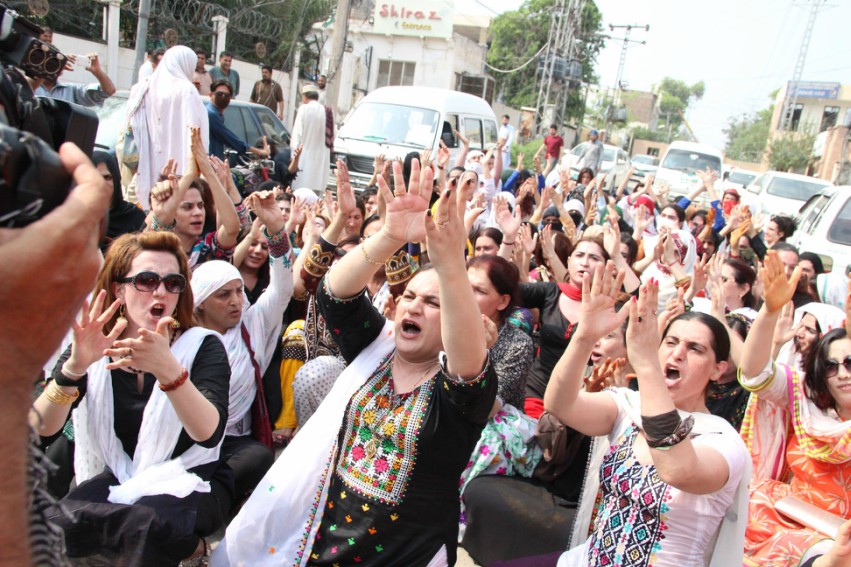Trans women have had enough in Pakistan. | Photo: Facebook/Trans Action Pakistan
LGBTI individuals and others in South Asia are at an increased risk of HIV and health problems due to violence because of their sexuality or gender.
A new UN report details the impact of violence based on sexual orientation, gender identity and expression (Sogie) on men who have sex with men (MSM) and transwomen.
The report details widespread discrimination and violence in families, schools, workplaces, and healthcare. It details how this puts individuals at a heightened risk of HIV, health problems, and mental health problems.
‘While there are well-documented trends in some regions of the world, less is known about Sogie-based violence, HIV risk and mental health among sexual and gender minority groups in South Asia,’ explained Valerie Cliff from the United Nations Development Program.
The report covered people living in Afghanistan, Bangladesh, Bhutan, India, Nepal, Pakistan and Sri Lanka. Titled Know Violence, it was released by the UNDP, the International Center for Research on Women (ICRW) and APCOM Foundation.
‘There is an urgent need to understand the impact and complexity of violence faced by men who have sex with men and transgender persons’, said Ravi Verma, Regional Director, Asia for the International Center for Research on Women in Delhi.
The report recommends more research into how social stigma, trauma, lack of legal recognition impact HIV risk and mental health.
The report also encourages understanding of how gender-based violence against MSM and transwomen differs from violence only on women.
Homosexual sex is illegal in Afghanistan, Bangladesh, Bhutan, Pakistan, and Sri Lanka. India decriminalized gay sex last week and Nepal did so in 2007.
Furthermore, Nepal and India are also the only countries to forbid Sogie-based discrimination. Nepal, India, Pakistan, Bangladesh all recognize transgender rights to varying degrees.
Key findings
MSM and transwomen faced sexual harassment in college, blackmail and extortion, violence in public places, sexual assault, and sexual harassment in the workplace
LGBTI South Asians and others faced discrimination in everyday life. This included in schools, religious spaces, healthcare, at work, at law-related institutions, and within communities. Significantly, they reported police as a common source of violence.
Consequently, the report found a lifetime of violence and marginalization led to devastating mental health problems. MSM and transwomen showed poor self-esteem and self-doubt. Many had depression or had attempted suicide.
Discrimination and violence also led increased HIV among, the report said. In 2010, the regional prevalence of HIV among men who have sex with men was 14.7 percent. In contrast, it was close to one percent in the general population.







